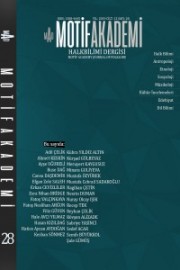HALKBİLİMİ ÇALIŞMALARINDA DİSİPLİNLERARASILIK: “NEDEN”, “NE ZAMAN”, “NEREDE” VE “NASIL”?
INTERDISCIPLINARYISM IN FOLKLORE STUDIES: WHY, WHEN, WHERE AND HOW?
Author(s): Ahmet KeskinSubject(s): Customs / Folklore, Cultural Anthropology / Ethnology
Published by: Motif Halk Oyunları Eğitim ve Öğretim Vakfı
Keywords: Folklore; interdisciplinaryism; theory and method; causality;
Summary/Abstract: There is little doubt that folklore, which has generally attained a sense of self-disciplinary competence, can actually be regarded as being dependent on various disciplines or as a sub-branch of other fields of study. There within this, the fact that folklore has emerged relatively late in comparison to other disciplines therefore has a considerable impact upon how it forms its own unique theories and methods in which it uses compile, examine, and analyze topics that fall within its broad umbrella. This perception has also been influenced by the fact that the subjects within the field of folklore have long been studied by researchers specializing in other disciplines. Folklore examines the cultural production and absorption of both individuals and societies alike from various angles using its own unique methodology, and yet is closely related to other disciplines that fall under the humanities and social sciences. In fact, it would not be wrong to define folklore as being one of the most open to interdisciplinary exchange when it comes to analyzing the array of topics that it deals with. In turn, as an independent discipline, it has become a necessity to discuss the relationship and interaction between folklore and other humanities/social sciences disciplines, which not only strengthen it theoretical base but also continuously feeds and therefore widens the range of subjects that it looks at. In accordance with this notion, the article therefore focuses on the basic characteristics that render folklore as being interdisciplinary branch of study, as well as looks how interdisciplinary approaches are used in folkloric studies. Moreover, it also attempts to discuss how folklore as an independent discipline can contribute to other cultural disciplines. Thus, the issue of interdisciplinaryism within the context of cultural sciences was analyzed using examples collected from folklore studies as a point of reference.
Journal: Motif Akademi Halkbilimi Dergisi
- Issue Year: 12/2019
- Issue No: 28
- Page Range: 925-944
- Page Count: 20
- Language: Turkish

